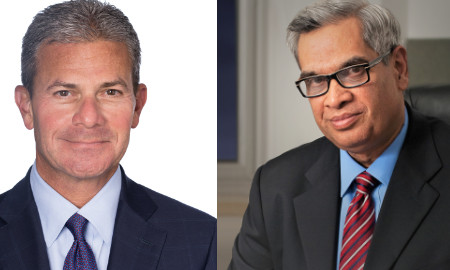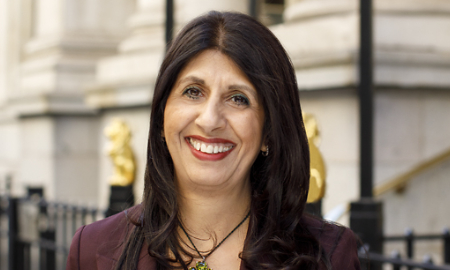Sign up for our free daily newsletter
YOUR PRIVACY - PLEASE READ CAREFULLY DATA PROTECTION STATEMENT
Below we explain how we will communicate with you. We set out how we use your data in our Privacy Policy.
Global City Media, and its associated brands will use the lawful basis of legitimate interests to use
the
contact details you have supplied to contact you regarding our publications, events, training,
reader
research, and other relevant information. We will always give you the option to opt out of our
marketing.
By clicking submit, you confirm that you understand and accept the Terms & Conditions and Privacy Policy
Earlier this year, India’s Prime Minister Narendra Modi remarked that the country’s economic forecast would be a “ray of hope for the world” amidst current global economic challenges. All eyes are on the global economic powerhouse of modern India.
Against this backdrop, no global law firm – indeed no business or organisation – which purports to offer comprehensive coverage of the world can do so without a presence in India. With law firms often being the first point of contact for organisations interested in entering a new market, having a presence in India will be table stakes.
A resilient subcontinent shaping a globalised world
Amid heightened geopolitical and economic risk in today’s globalised society, investors, business owners and workers increasingly seek environments with equal economic stability and unrealised growth potential. As the balance of economic power further evolves and fractures globally, nearly every expert points to the transformation of India, predicting it will soon “shape the world”.
India was recently projected by the United Nations to be the world’s most populous country, with a population of 1.4 billion, surpassing China. With only 7% of its people aged 65 or older, India has an abundance of younger, working-age citizens that support the country’s economic growth. Indeed, the World Bank predicts India’s GDP will grow by 6.9% this year, more than triple the expected global growth.
India offers a welcoming environment for large multinational companies flocking to the country. Apple shifted some of its production into the country last year to diversify its supply chain and last month opened its first brick and mortar stores in Mumbai and New Delhi. Aerospace giant Boeing recently struck a deal with Air India, announcing they would supply India’s largest airline with 220 aircraft valued at approximately $34bn. And Unilever, one of the world’s largest consumer goods companies, agreed to invest $85m in India by 2025. As more of India’s large economy becomes monitored, taxed and included in GDP, India will increasingly become a key global player.
To boot, the Indian government is spending nearly 20% of its 2023 budget on capital investments. With a focus on internal infrastructure, India is building a solid foundation for companies of all sizes to grow, emphasising the digital economy and urban development. The benefits of such investments are already evident – with more than 12 million small and medium-sized businesses formally registering with the Indian government between July 2020 and February 2023.
India continues to deepen its global trading relationships. During 1995-2021, exports from India to the United States grew at an annualised rate of 10.1%, solidifying the United States as India’s largest trading partner. But the United States is hardly India’s only focus, as material growth and new trade deals have been inked or are in progress with Australia, Canada, the EU, China, the United Arab Emirates and Singapore, while other key players have experienced a similar upward trend in their trading relationships with the subcontinent over the last three decades.
The long-awaited opening of India’s legal market
On March 15 this year, the Bar Council of India announced what the global legal market had long hoped for – that foreign law firms and lawyers could open their offices in India. This liberalisation has been discussed for many years since India’s economy opened up to the world in 1991. With the domestic legal market strong enough to compete globally, the time is right for more than “best friend” relationships between foreign and local firms.
As multinational clients increasingly enter India and locally-based businesses venture out into international markets, global law firms should be positioned to be trusted advisors on the ground in New Delhi or Mumbai just as they would be in Shanghai, Paris or São Paulo. Everyone will benefit from international relationship-building and exchange of work between India and the rest of the world.
‘Where the needle goes, the thread follows’
With globalisation, greater collaboration and the trading of goods and services result in a rising tide that lifts incomes and creates brighter futures for generations to come. Much work remains to be done, from including more women in the Indian workforce to infusing ESG and diversity, equity and inclusion into the core business strategy of Indian business. The global legal profession cannot be a bystander witnessing the emergence of India – it must be an active participant in blazing the trail as India elevates its position as a global leader. The world should watch and engage India closely; our collective success depends on it.
Elliott Portnoy is global CEO of Dentons and Atul Sharma is chairman of Indian law firm Link Legal. The previously announced combination between their two firms was launched today.
Email your news and story ideas to: [email protected]












